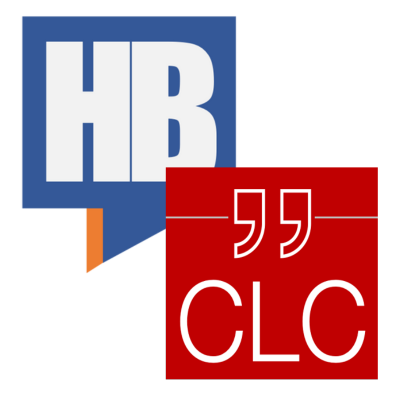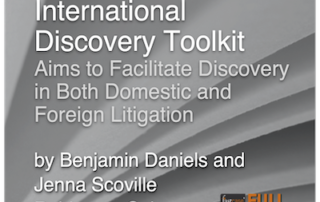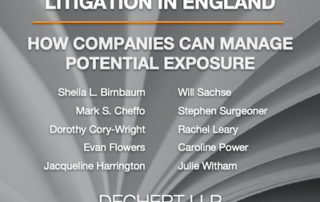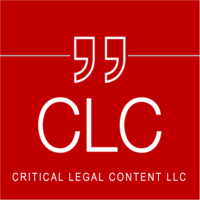
Emerging Litigation Podcast
The Intersection of Generative AI and the Legal Profession with Niki Black
In this episode, we discuss the current state and future of generative artificial intelligence and the practice of law with Nicole Black, attorney, legal tech journalist, and author. As she notes, "The legal field is one of the most likely to be impacted by generative AI because the technology can significantly replace certain workflows or assist with those workflows in impactful ways". Listen and learn more!
The Corporate Transparency Act: A New Effort to Fight Money Laundering with Lori Smith
In this episode, we discuss the Corporate Transparency Act (CTA) with Lori Smith of Stradley Ronon, including the key facets of the Act's requirements, potential penalties, and chances for litigation. As Lori notes, "the U.S. is one of the few countries in the world where you can form entities, and nobody can tell who owns them". The CTA aims to prevent this from being the case. Listen and learn more!
Litigators, YES Litigators: One Attorney’s Journey Within and Without the Legal Industry
In this episode, we discuss all the things one former litigator, Somya Kaushik, Senior Corporate Counsel at Mineral and Adjunct Professor of Law at Lewis & Clark Law School has done, and the advantages she feels a litigator can bring to a small company – one that isn’t embroiled in litigation (and would like to keep it that way). As she notes, "a litigator is well-positioned to identify actual but often overlooked legal risks, effectively mitigating issues and reducing both business and legal risks". Listen and learn more!
A Shameless Plug for Our Content Services
Your content marketing is everything you’ve ever dreamed of. Right?

Critical Legal Content was founded by Tom Hagy, former Editor & Publisher of Mealey’s Litigation Reports and VP at LexisNexis, founder of HB, current litigation podcaster and editor-in-chief. CLC’s mission is to help smaller firms and service providers not only create content — blogs, articles, papers, webinars, podcasts (like the stuff on this site) — but also to get it out there. How? Via social media, this website, your website, and potential via our podcast and journal which we publish in collaboration with vLex Fastcase and Law Street Media. The goal is to attract readers and dizzy them with your brilliance.
*Inspired by actual events.
Create content like a real legal publisher.
Journal on Emerging Issues in Litigation
International Discovery Tool Kit Aims to Facilitate Discovery in Both Domestic and Foreign Litigation
The Authors Benjamin Daniels advises financial institutions and global corporations about litigation and dispute resolution. As a member of the Business Litigation Group, Ben provides creative and ardent advocacy during litigation, enforcement actions, investigations, crisis management, and white-collar defense matters. Ben’s clients often face complex, cross-border disputes. He has deep experience with the interplay between domestic and international courts, including discovery disputes and Hague convention proceedings. He also represents clients in international arbitrations and mediations. Jenna Scoville is a member of the firm’s Business Litigation Group. She focuses her practice on all aspects of general business litigation and dispute resolution, as well as government enforcement matters, and appellate work. She helps companies respond to a variety of business disputes, including claims for breach of contract, unfair trade practices and fraud. Jenna also has extensive appellate experience. Prior to joining the firm, she clerked for the Honorable Peter W. Hall of the U.S. Court of Appeals for the Second Circuit. Interviews with leading attorneys and other subject matter experts on new twists in the law and how the law is responding to new twists in the world. International Discovery Tool Kit Aims to Facilitate Discovery in Both Domestic and Foreign Litigation "At a time when litigants have increasingly relied on U.S. federal courts to obtain otherwise unobtainable evidence from entities located within the United States, the U.S. Supreme Court has decisively closed the door to U.S.-style discovery in private arbitrations abroad. That means U.S. companies will no longer face the time, exposure, and expense of U.S.-style discovery that § 1782 had injected into those proceedings." Abstract: Business knows no borders. Every year companies increase their global reach and open new offices both domestically and abroad. The COVID-19 pandemic accelerated this process—remote employees spread documents and witnesses from Chicago to Shanghai to Sumatra. This [...]
The Use—and Abuse—of Rule 41(a) to Destroy Federal Question Jurisdiction Post-Removal
The Authors John defends manufacturers in product liability litigation involving a range of products, e.g., ATVs, RVs, institutional chemicals, medical devices, and pharmaceuticals. From single cases to mass tort litigation and class actions, John has defended clients in courtrooms around the country. Michael is General Counsel of Thor Motor Coach Inc., a final-stage manufacturer of motor homes headquartered in Elkhart, Indiana. He is also an adjunct professor of commercial law at the Notre Dame Law School. Taryn focuses her practice on litigation. She has experience dealing with products liability, discovery issues, corporate structure and governance, wealth management, private and commercial lending, real estate, and Indian affairs for lobbying both on state and federal levels. Taryn contributed valuable research to this article. Interviews with leading attorneys and other subject matter experts on new twists in the law and how the law is responding to new twists in the world. The Use—and Abuse—of Rule 41(a) to Destroy Federal Question Jurisdiction Post-Removal "A plaintiff seeking to divest the court of subject matter jurisdiction post-removal should at least comply with the requirements of the rule they have relied on. Glossing over those requirements undermines the purpose and intent of both the rule and removal statutes. The case should stay put in federal court in the absence of compliance." Abstract: Defendants in civil litigation can level the often uneven state court playing field by removing cases to federal court through federal question removal. In those cases in which the plaintiff has alleged a claim grounded in federal law, the defendant may remove the case to an often more impartial federal forum. Once removed, the plaintiff has few options for defeating removal. About the only option available to the plaintiff is to forgo the federal claim and divest the court of federal question jurisdiction, forcing remand to [...]
The Rise of Multi-Claimant Litigation in England and How Companies Can Manage Potential Exposure
The Authors Sheila L. Birnbaum Mark S. Cheffo Dorothy Cory-Wright Evan Flowers Jacqueline Harrington Will Sachse Stephen Surgeoner Rachel Leary Caroline Power Julie Witham Interviews with leading attorneys and other subject matter experts on new twists in the law and how the law is responding to new twists in the world. The Rise of Multi-Claimant Litigation in England and How Companies Can Manage Potential Exposure "With the growth in US/English partnerships for bringing multi-claimant actions in England, there may be an increased interest in leveraging US discovery for copycat English claims. The larger mass torts become in the United States, the more likely they are to feed into related multi-claimant actions in England." Abstract: Recent court decisions have signaled the English courts’ willingness to embrace multi-claimant litigation and to broaden the types of questions decided on a collective basis. These developments have led UK-based plaintiffs’ lawyers to expand mass tort filings, including doing so in partnership with US plaintiffs’ lawyers who are actively advertising in England. This article provides an overview of multi-claimant litigation in England, highlights some of the factors that may lead to its increase, and discusses steps that companies operating in the English market can take now to manage potential exposure. Three primary mechanisms for bringing collective actions before an English court: 1) Representative actions, group litigation orders (GLOs), and collective actions before the Competition Appeal Tribunal (CAT). 2) Representative actions, in their current form, and GLOs are products of the general Civil Procedure Rules (CPR). 3) Representative actions originated in the common law and permit a representative claimant or defendant with the “same interest” in a claim to represent that interest on behalf of a class. Download the article now!









